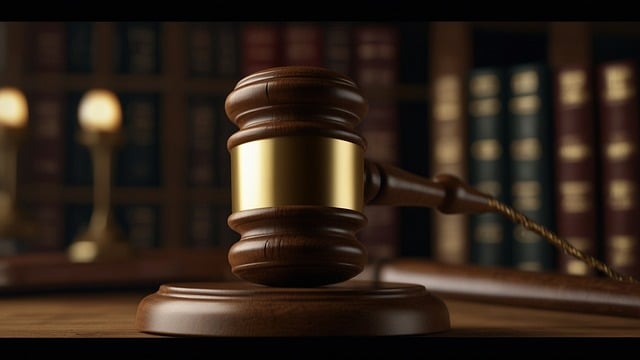Contempt of court occurs when individuals or entities willfully disrupt legal proceedings or refuse to comply with court orders, leading to penalties including fines and imprisonment. It has two types: direct (courtroom disruption) and indirect (actions outside the courtroom). Penalties vary by jurisdiction and case severity. Understanding contempt is crucial for avoiding charges; seeking legal representation enhances defense strategies. Notable cases like In re Grand Jury Proceedings (US) and R v Jones (UK) highlight its impact on judicial integrity.
Contempt of court is a serious legal issue with significant consequences. This comprehensive guide delves into the complexities of contempt obligations and legalities, equipping readers with a thorough understanding of this often-misunderstood concept. From defining what constitutes contempt to exploring its types, who can be held accountable, and the associated legal repercussions, we provide insightful explanations. Additionally, learn about defense strategies against contempt charges through real-world examples and case studies. Uncover the intricacies of navigating this legal landscape with our detailed breakdown of contempt of court.
- What is Contempt of Court?
- Types of Contempt: Direct and Indirect
- Who Can Be Held in Contempt?
- Legal Consequences of Contempt
- Defending Against Contempt Charges
- Real-World Examples and Case Studies
What is Contempt of Court?

Contempt of court refers to the deliberate act of disrespecting, hindering, or disobeying a judge or court order. It’s a serious legal issue that occurs when an individual fails to comply with a court’s mandate or engages in conduct that obstructs the judicial process. This can range from refusing to attend a scheduled hearing to wilfully failing to adhere to a temporary restraining order or any other court-mandated instruction.
The concept of contempt of court is rooted in ensuring the integrity and efficiency of the legal system. When an individual shows contempt, they undermine the authority of the court and may face significant consequences. These penalties can include fines, imprisonment, or both, depending on the severity of the offense and local laws. Understanding these obligations and legalities is crucial for anyone involved in a legal dispute to avoid such charges and ensure a fair and orderly resolution.
Types of Contempt: Direct and Indirect

Contempt of court is a serious legal matter that occurs when an individual fails to comply with a court order or engages in conduct that obstructs the administration of justice. Understanding the different types of contempt is crucial for both individuals and legal professionals to avoid such charges. There are two primary forms: direct and indirect contempt.
Direct contempt involves actions that directly disrupt a court proceeding, such as insolent behavior, disruption of the courtroom, or willful refusal to comply with a specific order. On the other hand, indirect contempt relates to actions outside the courtroom that negatively impact the legal process. This includes failure to obey a subpoena, non-payment of fines or financial obligations as ordered by the court, or any conduct that hinders the court’s ability to carry out its functions effectively.
Who Can Be Held in Contempt?

Anyone who fails to comply with a court order or disrupts the legal process can be held in contempt of court. This includes individuals, businesses, and even legal professionals. The specific actions that constitute contempt are defined by the jurisdiction and the particular case, but they often involve willful failure to appear in court, non-compliance with a subpoena, or obstructing justice.
The determination of contempt is made by the judge overseeing the case. If found guilty, individuals can face various penalties, such as fines, imprisonment, or both. The severity of the punishment depends on the nature and seriousness of the contumacious act, as well as any prior instances of contempt.
Legal Consequences of Contempt

The legal consequences of contempt of court can be severe, as it is considered a serious offense that undermines the authority and integrity of the judiciary. Individuals found guilty of contempt face various penalties, including fines, imprisonment, or both. The specific punishment is determined by the severity of the infraction and the jurisdiction in which the case is heard. In many jurisdictions, contempt of court is categorized into two types: civil and criminal. Civil contempt involves failing to comply with a court order, such as refusing to pay child support or ignoring a subpoena, while criminal contempt carries more significant penalties for willful disobedience or obstructing justice.
The impact of contempt of court extends beyond immediate financial or physical consequences. It can lead to long-lasting damage to one’s reputation and future legal prospects. Repeated or severe cases of contempt may result in prolonged imprisonment and substantial fines, making it a costly and detrimental mistake. Moreover, individuals convicted of contempt may face additional legal repercussions, such as having to pay the opposing party’s legal fees and restitution, which can further exacerbate the financial burden.
Defending Against Contempt Charges

Facing contempt of court charges can be a daunting prospect, but there are steps individuals can take to defend themselves effectively. The first line of defence is understanding the nature of the alleged contempt. This involves clarifying whether the actions or statements in question were intended to undermine or disrespect the court process or its authority. Many instances of perceived contempt arise from misunderstandings or lack of awareness of legal procedures, making education and communication key to dispelling these charges.
Legal representation is another crucial aspect of defending against contempt of court allegations. A qualified lawyer can help interpret the specific laws and previous case rulings related to contempt, tailoring a defence strategy that aligns with the unique circumstances of the case. They can also ensure that any arguments or submissions made in court are robust and in line with legal precedents, significantly improving the defendant’s chances of a positive outcome.
Real-World Examples and Case Studies

Contempt of court is a serious matter with real-world implications, as seen in various case studies across different jurisdictions. For instance, in a high-profile US case, In re Grand Jury Proceedings (1994), a witness was held in contempt for refusing to answer questions before a grand jury, citing the First Amendment. This case highlighted the delicate balance between the right to remain silent and the court’s authority.
Another example comes from the UK, where in R v Jones (2007), a defendant was found guilty of contempt for publicly accusing a judge of bias. The court ruled that such statements undermined the integrity of the judiciary, demonstrating the severity of contempt offences. These cases illustrate how contempt of court can manifest in various ways, requiring individuals to understand their obligations and the potential consequences to ensure the fairness and efficiency of legal proceedings.






